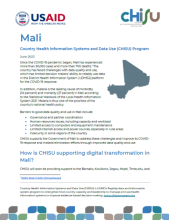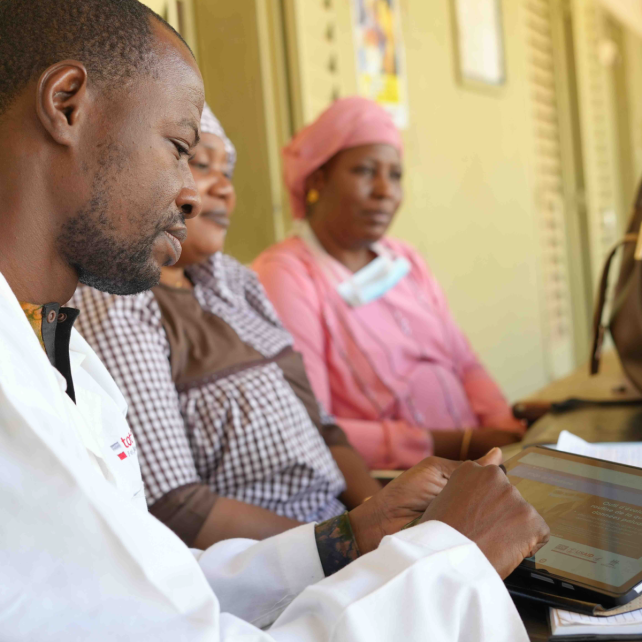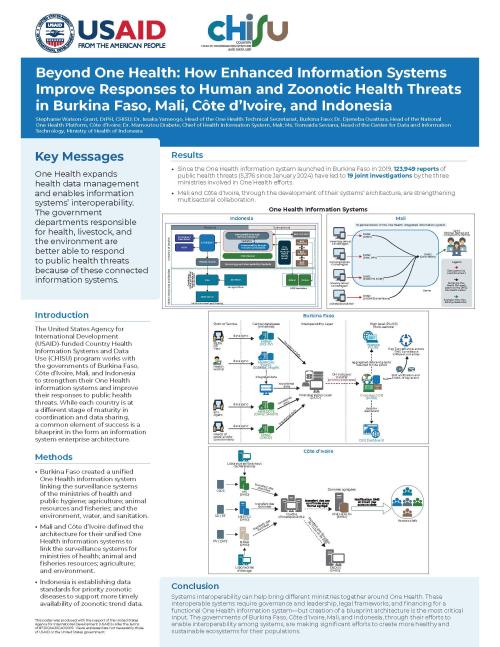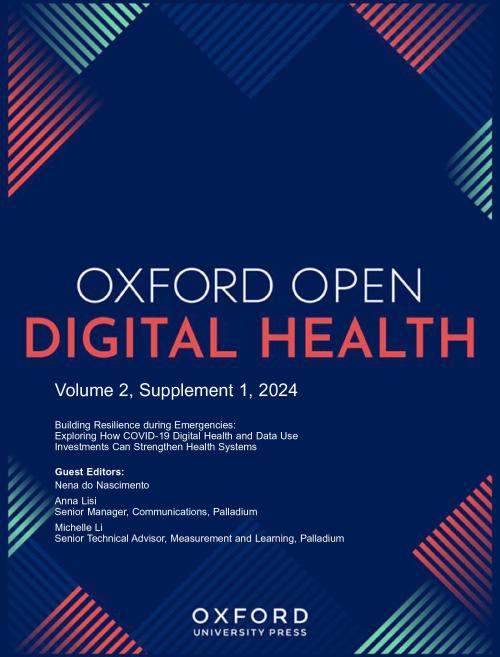Mali
CHISU will soon be providing support to the Bamako, Koulikoro, Segou, Mopti, Timbuktu, and Gao regions to improve coordination of malaria data systems; strengthen the implementation of guidelines and digital tools; and improve the availability and quality (accuracy, timeliness, completeness, and internal consistency) of malaria data through strengthening the review and analysis of malaria data at both central and regional levels. CHISU will also provide support in conducting malaria Routine Data Quality Assessment (mRDQA) and developing and disseminating data analysis products, including automated malaria bulletins and reports.
Recently, CHISU worked at the central and subnational levels in Mali to bolster availability, quality, and use of COVID-19 data in order to improve the country’s response to the pandemic at all levels of the health system. To do this, CHISU collaborated with the Institut National de Santé Publique (Mali’s National Institute of Public Health), the Director General for Public Health and Hygiene (DGSHP), and the Cellule de Planification et de Statistique (Office of Planning and Statistics, or CPS) to better link the national COVID-19 crisis committee to established HIS governance structures in Mali, strengthen systems for collecting data related to COVID-19, and improve data quality processes and analytics as well as data use to respond to the pandemic.
Specifically, CHISU recently worked with Mali to:
- Strengthen COVID-19 coordination bodies to coordinate activities, resolve implementation issues, and make joint decisions on technical matters related to the HIS
- Expand the use of health management information systems for COVID-19 surveillance and data use, including supporting system enhancements such as customization, interoperability, and maintenance
- Align COVID-19 data collection tools
- Conduct an HIS interoperability maturity assessment and develop standards-based system interoperability guidelines
- Enhance community-based surveillance for COVID-19
- Conduct an information communication technology (ICT) assessment and procurement
- Support development of a data quality assurance plan, COVID-19 data quality reviews, and supportive supervisions
- Improve the COVID-19 SitRep (situation report) as well as COVID-19 dashboards

Activity Updates
Strengthening data use for action against malaria in Mali

In Mali, we supported NMCP in customizing the mRDQA tool in DHIS2; training regional and district malaria focal points and HIS officers in six regions and 41 districts on the customized tool; and conducting mRDQAs in 11 reference health centers and 33 community health centers of t Read more ›
Blog Posts
Improving malaria data quality for better decision making in Mali
While malaria is a primary cause of mortality and morbidity in Mali, the country’s fight against the disease has made encouraging progress in recent years thanks to better data management and use. Read about how CHISU has supported Mali's National Malaria Control Program to customize and implement the Malaria Routine Data Quality Assessment (mRDQA) tool to improve malaria data quality. Read more ›
Resources

CHISU presented this poster on our one health work in Burkina Faso, Mali, Côte d’Ivoire, and Indonesia at the World One Health Congress in September 2024.

There is limited research on how emergency investments can support national health information system strengthening both for a given health emergency response and for routine health program areas.